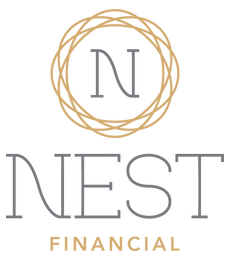Education, including financial literacy, ends when you move the tassel from one side of your mortarboard hat to the other. Right?
If you’re reading this, then obviously not for you.
So ask yourself, how have you improved your financial literacy lately? Do you keep a budget? Do your friends contribute regularly to a retirement fund? Does your brother live hand-to-mouth? Do you know the difference between simple and compound interest? What is the best long-term investment? Is it stocks? Gold?
April is National Financial Literacy Month – an entire 30 days during which we can examine and reflect on our own financial health, knowledge, and habits.
Financial literacy is, in essence, having an understanding of the financial issues that everyone has to deal with — bills, savings, investing, repaying debts, retirement, etc.
Our finances touch every aspect of our lives, and yet, if the statistics on it are any indication, the United States seems woefully undereducated when it comes to financial literacy.
The State of the Union’s Financial Literacy
In fact, more than half of teens want more education when it comes to handling money, budgeting, how to handle bank accounts, and investing. And most adults agree with them. 85% of parents in the US believe that in order to earn a high school diploma, students should be required to complete a financial literacy course.
And yet only around a third of parents regularly talk to their kids about money.
So, kids are generally getting a rotten start in terms of financial know-how.
But adults definitely learn how to budget, save for retirement and invest, right?
Sadly, the numbers here aren’t much better.
- Only around 40% of adult Americans track spending and use a budget
- More than 75% live paycheck-to-paycheck
- 50% or so keep three months expenses in an emergency fund, while
- 25% have no savings at all
- More than 33% worry they won’t save enough to retire
- Nearly half of adults don’t have enough money saved for emergencies
No wonder someone saw the need for an entire month dedicated to raising financial literacy!
Who are we kidding about our financial literacy? Not ourselves.
At least we overwhelmingly own our deficit of financial knowledge. If this was one of those assignments in school where you give yourself a grade, two out of five adults would give themselves a “C” or lower.
But if we take the time to understand our finances, learn how to better manage money, and how to be scrappy with our resources, most people can improve their finances.
So, when did your financial education begin? And as a lifelong learner, what are you doing to continue expanding your knowledge?
Here are some suggestions for things you can do to make sure that you stay financially healthy, wealthy, and wise.
- Read books on personal finance– if you take even 15 minutes a day, you’d be surprised how many books you could get through, and how much knowledge you could gain
- Read blogs and magazines — there’s a ton of free, byte-sized resources out there
- Listen to money podcasts — Podcasts are super-popular, and you can further your financial literacy on the go
- Sign up for a financial literacy course — there are plenty of free options available, but even if it isn’t free, this investment will offer lifelong returns
- Learn how to make a budget — and start sticking to it
- Start saving — even if you start small, this is a very good and important habit to create
- Take a deep dive into your credit score — and work to start raising it
- Meet with a financial advisor — you don’t have to take this journey alone — in April or after
Want some company on your adventure in financial literacy? Let us be your guide on the side. Connect with our experts by scheduling a no-obligation call. At NEST, we are passionate about helping you achieve your financial goals, and about demystifying financial concepts so that you can make smart decisions for your financial future. We work with clients in Austin, the Hill Country, and around the country.
Find us on:
LinkedIn Facebook Yelp Twitter
DISCLAIMER: We are legally obligated to remind you that the information and opinions shared in this article are for educational purposes only and are not financial planning or investment advice. For guidance about your unique goals, drop us a line at info@nestfinancial.net






[…] than you’d expect. In order to get you through an extended job search, we recommend doubling your emergency fund, aiming for 6 months to a year’s worth of living […]